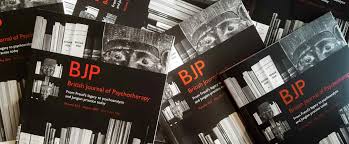The British Journal of Psychotherapy’s November 2025 issue, presents a diverse collection of scholarship examining contemporary psychotherapeutic practice, theory, and cultural contexts, featuring four open access articles. The issue opens with notes from the editorial team (free access), and moves into Jo Mercer’s timely exploration Populist narratives of ‘Narcissistic Abuse’: a help or hindrance to psychotherapeutic practice? which critically examines how popular discourse around narcissistic abuse has proliferated in social media and public consciousness, questioning whether these populist narratives support or complicate clinical work with clients who have experienced relational harm.
Tom Tomaszewski contributes Be somebody else: Improvisation, momentum and psychoanalysis as social psychotherapy, exploring connections between improvisational theater techniques and psychoanalytic practice. Pierre Bonny, Charlotte Tazartez, and Giorgia Tiscini present “Paradoxical ‘weaning complex’ in bariatric surgery: From hyperphagic addiction to a pleasure in speaking,” which analyzes the psychological dynamics of patients undergoing bariatric surgery, examining how the transition from compulsive eating to verbal expression reveals complex relationships between bodily pleasure, addiction, and symbolic communication.
Melanie L. Williams contributes an open access article titled Justice signified: Naming injustice in the therapeutic space, which explores how therapists can acknowledge and address social, political, and systemic injustices within clinical work. Lutz Goetzmann, Marie Eichenlaub, Christian Benden, Annette Boehler, Adrian M. Siegel, Josef Jenewein, Annina Seiler, Uwe Wutzler, and Barbara Ruettner present another open access piece, The functions of the logical mirror operator in the processing of organ transplantation, examining the complex psychological processes involved when patients receive transplanted organs, exploring how individuals integrate foreign bodily parts into their sense of self and identity.
Édua Holmström offers an open access article exploring Searching for dissociated self-states: Relational psychoanalytic conceptualization of mind and therapeutic action, which examines how relational psychoanalytic theory understands the fragmentation of self into dissociated states and how therapeutic work can facilitate integration and wholeness. Ali Yansori presents an open access article asking “What can psychoanalysis learn from Sufism?” which explores potential cross-fertilization between psychoanalytic theory and Islamic mystical traditions. Yansori examines Sufi concepts and practices that may enrich psychoanalytic understanding of consciousness, transformation, and healing, contributing to growing interest in integrating diverse spiritual and philosophical traditions with Western psychological frameworks.
Konstantin Nemirovskiy provides Clinical commentary 51, offering reflections on contemporary clinical practice and theoretical developments. The issue’s book review section features substantial reviews of several significant recent publications. Joanne Stubley reviews Graham Music’s Womb Life: Wonders and Challenges of Pregnancy, the Foetus’ Journey and Birth, examining Music’s exploration of prenatal experience and its psychological significance. Elaine Quaile reviews Karl Melvin’s Navigating Family Estrangement: Helping adults understand and manage the challenges of family estrangement, addressing the growing phenomenon of family disconnection and therapeutic approaches to this painful experience.
These are just some of the enlightening articles to be found in this issue, to view the full list of articles you can click here.

